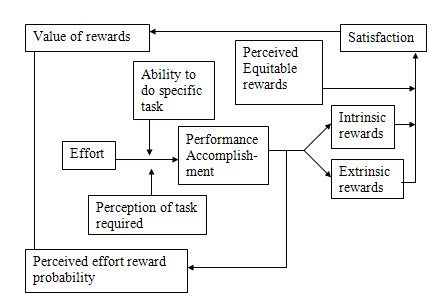

National Association of Christian Ministers Leadership Series
Equity Theory in Ministry
By Michael Mooney, Exec. Elder
Heb 10:35 MKJV
(35) Therefore do not cast away your confidence, which has great recompense of reward.
Equity Theory is in essence the concept of what is fair and unfair (J. A. Adams). The idea is that people are compelled to make evaluations of situations, circumstances, and outcomes to determine whether or not they are fair or unfair. These judgments become all the more probable when people have interest, time, labor, etc. invested into the circumstances under scrutiny. It is quite natural that people will begin to feel that a situation is unfair when they believe that they are putting in more than they are getting out. Often when this happens people are also tempted to slack off of their inputs to bring about “equity” for their involvement. Contrarily, Equity Theory also suggests when people are overcompensated for their inputs, they will seek to create equity by raising their inputs, or rationalizing the circumstances to a place of balance.

2Jn 1:8 MKJV
(8) Look to yourselves, so that we may not lose those things which we worked out, but that we may receive a full reward.
For these reasons leaders should regularly take equity evaluations of their expectations of the the people they lead. Usually in employment settings this is first accomplished by considering employee compensation. In ministry settings this becomes more difficult because people generally work on a voluntary basis. However, their service is not totally voluntary because there is the pretense that God will reward them for their inputs.
Mat 16:27 MKJV
(27) For the Son of Man shall come in the glory of His Father with His angels, and then He shall reward each one according to his works.
In situations of ministry it is very difficult to determine who gets compensated. In smaller church settings no one does. In the next level up the pastor is compensated. The next level is for the pastor and worship leader and or lead musician to be paid for their labors. Unfortunately, no matter how one looks at it someone is going to go unpaid, praise team singers, Sunday-school directors/teachers, childcare helpers, etc. Where do we draw the line? This is a very good question. Arguments for compensation can be made to the extremity of paying everyone, even people just to show up on Sundays and sit in the pews -although, this seems a little bit absurd. More realistically the line for compensation is usually drawn with the organization’s budget. This means that spiritual leaders must help maintain an equity of perks, benefits, and expected spiritual rewards for their volunteers.
1Co 3:8 MKJV
(8) So he planting, and he watering, are one, and each one shall receive his own reward according to his own labor.
Suggestions for maintaining balanced equity:
* Build and maintain a relationship with those who assist the ministry
* Say “thank you” on a regular basis
* Acknowledge helpers in bulletins, newsletters, and by announcements
* Allow volunteers to have titles
* Allow volunteers to use the ministry’s resources such as tables for their yard sales, fellowship hall for birthday parties, etc. (upon request)
* Remind them of their treasure in heaven
Reference
http://en.wikipedia.org/wiki/Equity_theory




